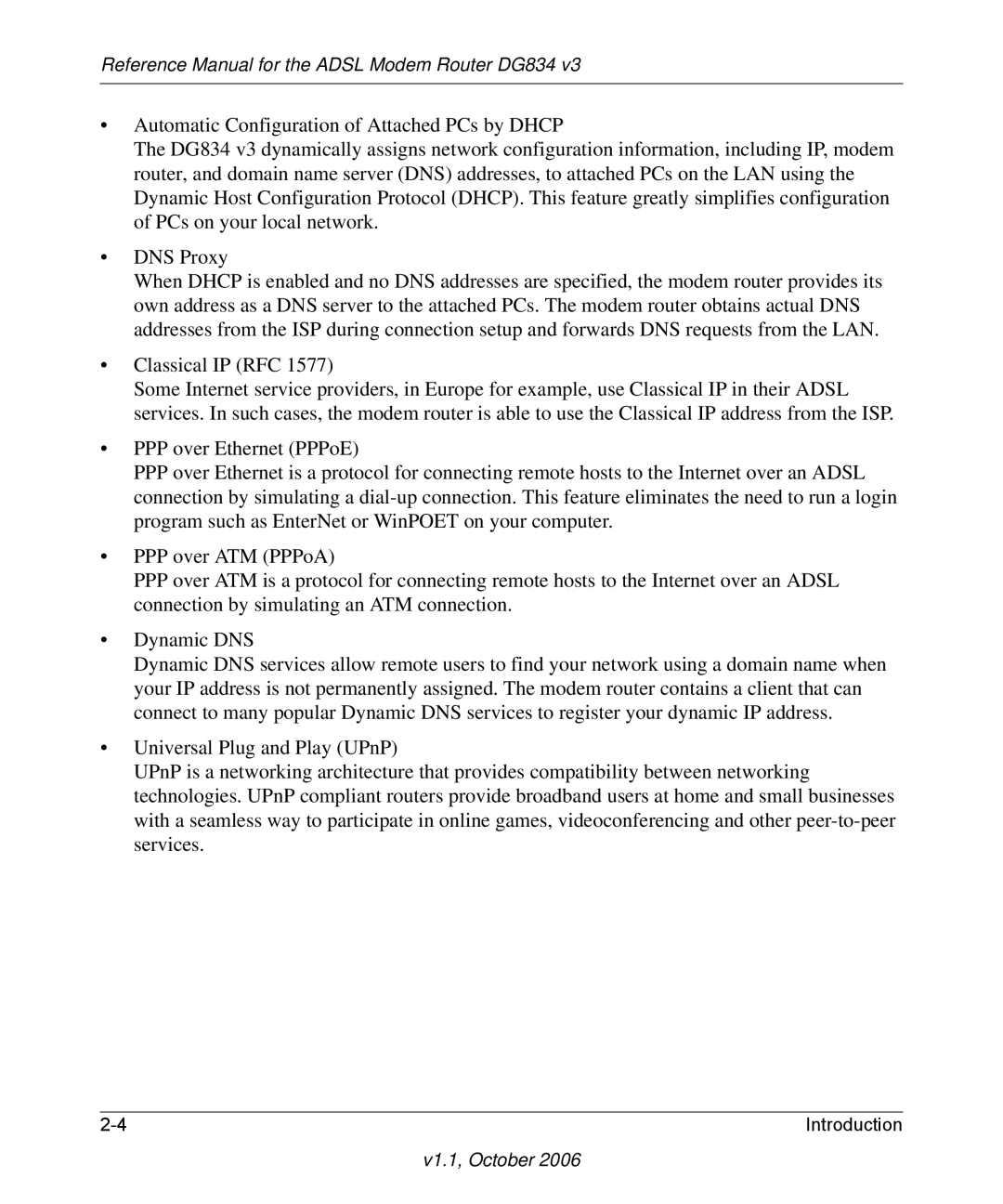Reference Manual for the ADSL Modem Router DG834 v3
•Automatic Configuration of Attached PCs by DHCP
The DG834 v3 dynamically assigns network configuration information, including IP, modem router, and domain name server (DNS) addresses, to attached PCs on the LAN using the Dynamic Host Configuration Protocol (DHCP). This feature greatly simplifies configuration of PCs on your local network.
•DNS Proxy
When DHCP is enabled and no DNS addresses are specified, the modem router provides its own address as a DNS server to the attached PCs. The modem router obtains actual DNS addresses from the ISP during connection setup and forwards DNS requests from the LAN.
•Classical IP (RFC 1577)
Some Internet service providers, in Europe for example, use Classical IP in their ADSL services. In such cases, the modem router is able to use the Classical IP address from the ISP.
•PPP over Ethernet (PPPoE)
PPPover Ethernet is a protocol for connecting remote hosts to the Internet over an ADSL connection by simulating a
•PPP over ATM (PPPoA)
PPPover ATM is a protocol for connecting remote hosts to the Internet over an ADSL connection by simulating an ATM connection.
•Dynamic DNS
Dynamic DNS services allow remote users to find your network using a domain name when your IP address is not permanently assigned. The modem router contains a client that can connect to many popular Dynamic DNS services to register your dynamic IP address.
•Universal Plug and Play (UPnP)
UPnP is a networking architecture that provides compatibility between networking technologies. UPnP compliant routers provide broadband users at home and small businesses with a seamless way to participate in online games, videoconferencing and other
Introduction |
